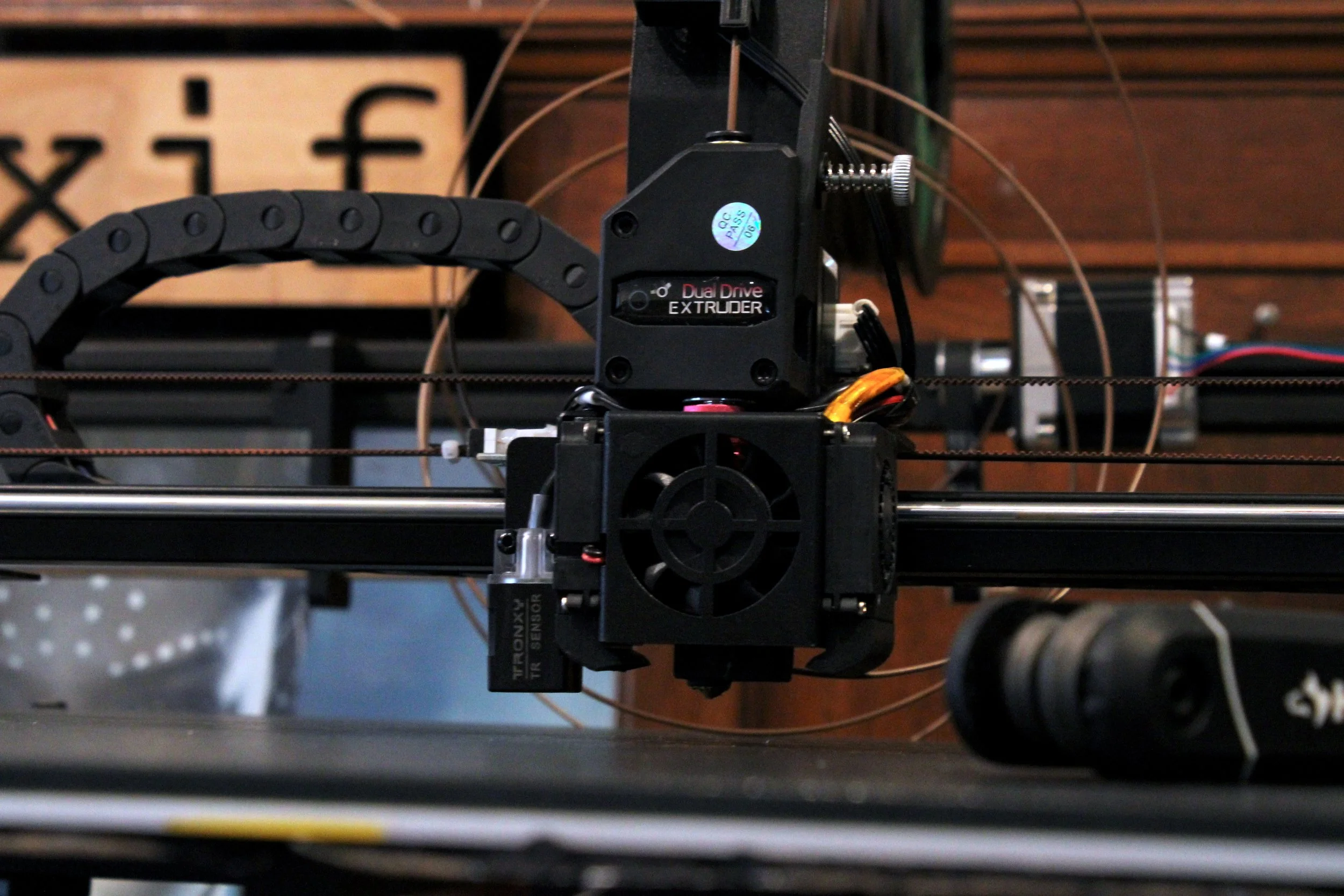HOME | ABOUT | YOUTH PROGRAMS | PUBLIC WORKSHOPS | FAB LAB
At BCDI, we know that Bronxites are already innovators and entrepreneurs. We are creating opportunities for Bronxites to use cutting-edge technology to solve community challenges and create shared wealth.
What we offer
Shared Fabrication Facilities. Through our fab lab, we offer access to 3D printers, CNC machines, laser cutters, electronics, and more.
Training & Workshops. We provide hands-on opportunities to introduce and deepen knowledge on manufacturing and design, innovation, entrepreneurship, and economic democracy.
Business Incubation. We provide targeted support for entrepreneurs and include a focus on shared-wealth enterprises.
Ecosystem Building. We build strategic partnerships with key institutions to support a more equitable advanced manufacturing sector throughout the Bronx.
Why advanced manufacturing?
In order to remain competitive, local economies must be able to adapt and innovate, and advanced manufacturing is offering new tools to do so.
Advanced manufacturing is the process of people using computer technology to design and make products. Advanced manufacturing incorporates both digital fabrication and electronics, and allows people to prototype, test, and redesign products quickly and inexpensively. It also allows for custom products to be made on demand, with minimal equipment and within a small, urban footprint. As a rapidly growing sector, advanced manufacturing is in its early stages but draws on both the traditional manufacturing and tech sectors.
Advanced manufacturing can democratize innovation by reducing the training, investment, and space needed to make products. Meanwhile, we have seen “onshoring” of production—bringing production back to the United States, after decades of offshoring—across a range of traditional manufacturing companies.
Advanced manufacturing not only represents an unprecedented opportunity, but also is an imperative. As the technology sector has grown, it has become very male (despite a stronger gender balance when the field of computer science first emerged), very white, and very unequal. As a result:
technology does not currently work optimally for women and people of color (e.g. facial recognition technology performs poorly for dark-skinned people, in particular, for dark-skinned women, and similarly, self-driving cars are more likely to hit dark-skinned people)
the range of questions it has sought to innovate around have been limited (seeking primarily to solve lifestyle issues for the wealthy, white men who design and invest in technology—offering rides, meal delivery, cleaning services, etc.)
“disrupting markets” has primarily meant further destabilizing labor and employment, while the resultant wealth generated accumulates to the very few
Conversely, we have the opportunity to shape advanced manufacturing from the very outset, to ensure that it doesn’t follow the same path. At BCDI, we believe that we can:
shape employment and ownership in this sector in that way that builds shared wealth and ownership, allowing gains in production efficiency to benefit a broad range of people rather than resulting in layoffs and more unequal wealth distribution
address the challenges faced by communities of color, immigrants, and low-income communities—markets not currently being met by traditional industry and in which Bronxites have a competitive edge due to their lived experiences
focus on innovations that do not only seek to minimize labor but instead take advantage of the new production possibilities facilitated by digital fabrication technology—including on-demand and on-site production, exact replication of existing objects, virtually unlimited complexity, and a high degree of customizability.
To be clear, technology alone will not solve inequality or oppression. It can, however, immediately improve community health and wellbeing, while creating shared local wealth and posing alternative narratives that do address the root causes of these challenges.

